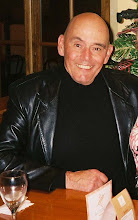In a devastatingly critical examination of the narco-state formerly known as Afghanistan, the
New York Times’ Dexter Filkins today documents case after case of wide spread corruption on a massive scale in the Afghan government, including officials ranging from low-level, local bureaucrats right up to the brother of President Hamid Karzai. Filkins shows the difficult situation Pres. Obama will face in dislodging a surging Taliban, and the feudal war lords who’ve run the country for centuries, both of which are profiting from opium smuggling, and paying and receiving bribes.
It didn’t take years cultivating sources or meeting a “Deep Throat” in dangerous Kabul alleys for him to pen the piece. Filkins arrived in Kabul only about two months ago following several years covering Iraq, interrupted by a year in the US to write a book. In reading the article, it seems he did much of his reporting simply standing in front of government offices and court houses, talking to people coming out after they paid a bribe to judges and other officials, or refused to do so.
So, why did it take so long for any Western journalist to write this story? Moreover, why did the Bush administration allow the situation to get so out of hand?
Could-a, Should-aThe outstanding Filkins article highlights a major problem in newsrooms today. His article could have – and should have – been written a year or more ago; it’s not as if corruption showed up in Kabul at Halloween as a trick-and-treat handout.
Why has the news media been sleeping, especially since thousands more American troops will be re-routed to Afghanistan from Iraq after the Obama inauguration?
Part of the lack of coverage might be explained by the relatively few number of American, British and European reporters based permanently in Kabul. A perfect storm of tight budgets which means fewer reporters that leads to dwindling international coverage coupled with a lack of editorial interest and a preference for dramatic battlefield stories when reporters are loosed on the country leaves little room for what journalists call “enterprise stories” – those that take time to report and write.
To illustrate the issue, I’ve realised that the BBC has more reporters stationed permanently in Africa than most major US print and broadcast news outlets have in Europe and Asia combined. True, the broadcaster gets generous funding from the British government added to by a license fee levied on each TV set in the country along with ad revenue from some of its networks, but how it allocates its annual budget is very different than the way its American counterparts dole out cash to news operations.
No wonder Americans are so ill-informed about the world. Even if they want to know more, they have to really go out of their way to find key information.
Missed OpportunitiesMeanwhile, after the American invasion in 2001, Afghanistan became poppy central, harvesting more plants than anywhere else on earth. While some Western media have covered this angle off-and-on, before Filkins’ story no major newspaper or network has documented in such detail the extent and pervasiveness of drugs-related corruption. Compared to what goes on daily throughout Afghanistan’s government, Rob Blagojevich is a clumsy amateur.
Under George Bush, the American and NATO strategy of dealing with poppy growing in Afghanistan has been to send troops across farmland destroying crops. This did two things: First, it alienated Afghan farmers whose land wouldn’t support any other agriculture. Second, it gave war lords, drug lords and the Taliban an opportunity to say to farmers, “Come join us. We’ll protect you and buy your harvest for cash.”
In yet one more mistake on a long list of foreign policy errors, the White House missed a chance to slow Afghanistan’s opium trade and deny insurgents a ready source of hard currency, which also propels corruption. Instead of burning fields, Bush could have followed the successful lead of earlier US efforts to control poppy growing and opium smuggling in Turkey. Using US money, the Turkish government buys up the annual harvest, handing it over to the Americans who, in turn, sell some to pharmaceutical companies – which uses an opium offshoot in many prescription drugs – and burn the rest.
The strategy works, and it's a lot cheaper than sending in the cavalry: Farmers are content, world opium supplies are cut, crime lords are cut out of the picture and pharmaceutical companies have a ready supply of a much-needed ingredient. Dick Cheney and Don Rumsfeld reportedly vetoed the proven Turkish approach in Afghanistan, just one more tragedy in the long list of Bush administration tragedies.
The way the US government, newspapers, cable and broadcasters have dealt with Afghanistan reminds me of a line from Paddy Chayefsky’s brilliant 1971 film,
The Hospital. George C. Scott, playing an exhausted and frustrated suicidal physician, decides to quit medicine and run off to Arizona with Diana Rigg – well, she’s reason enough to quit any job and run off anywhere with her – because he realises patients are being “neglected to death.”
Between journalism’s indifference and US government missteps, Afghanistan is being “neglected to death.” Let's all give a very big “Hoorah!” to Dexter Filkins for showing the results.

